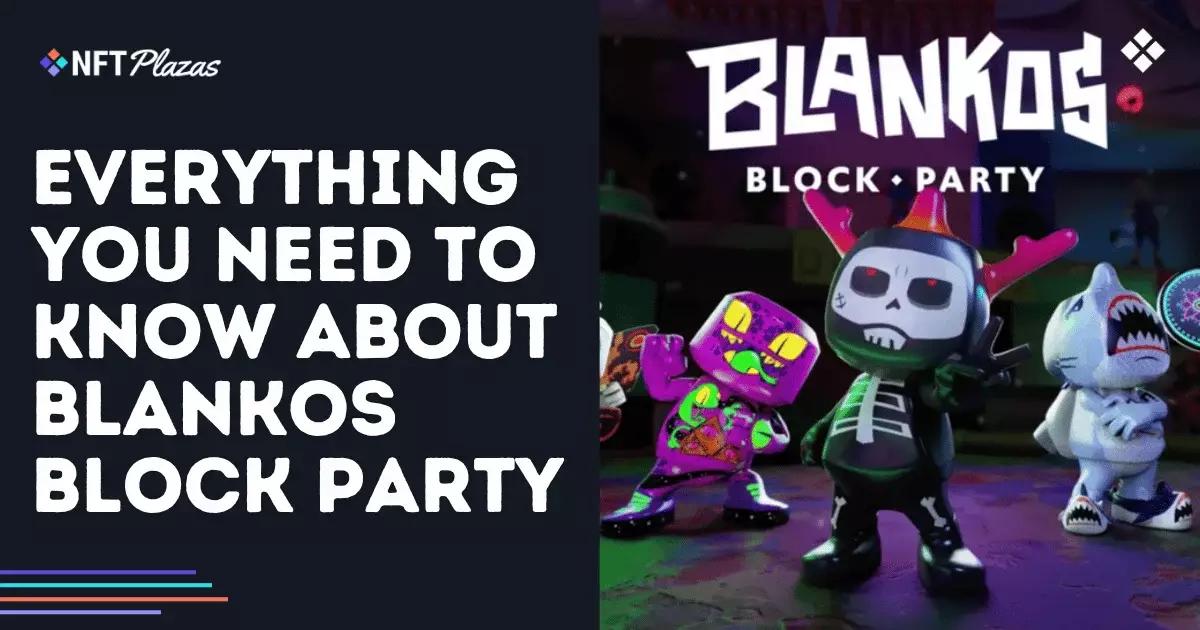When Blankos Block Party burst onto the scene, it was heralded as a groundbreaking fusion of blockchain technology and interactive entertainment. Promising true digital ownership through NFTs, the game flirted with the idea of a player-driven economy and creative independence. However, beneath this glossy veneer lay a collection of problematic assumptions about blockchain’s role in gaming. The fact that more than 85% of transactions still relied on fiat currency exposes a crucial flaw: for most players, blockchain was an afterthought rather than a core feature. The ownership of digital assets, which was meant to revolutionize how players interact with their collectibles, became—not surprisingly—another form of digital speculation, vulnerable to market volatility and platform shifts. The very concept of “ownership” became fragile, contingent upon the blockchain infrastructure and the continued support of game developers, rather than being an absolute right.
The unboxing mechanic, which was supposed to heighten scarcity and create excitement akin to collectible toys in the real world, revealed itself as a double-edged sword. Scarcity drives value, yes—but it also breeds frustration when players are left holding unopenable or untradeable assets due to technical limitations or platform restrictions. As the game shifted focus from dedicated desktop experiences to mobile, the promise of true ownership was devalued further. Transferring collections across platforms or ensuring the longevity of the assets became increasingly problematic, ultimately exposing the superficial promise of blockchain-enabled ownership as incomplete and unreliable—a mirage that only persisted because of hype rather than tangible utility.
The Myth of Democratized Creativity and the Power of Corporate Partnerships
Blankos was built with the noble intention of empowering players—allowing them to create, customize, and earn from their in-game assets. Its user-generated content system showed genuine ambition in democratizing digital creativity, echoing the success of platforms like Roblox. Yet, this promise was fundamentally compromised by the presence of corporate collaborations and limited-edition drops from prestige brands like Burberry and Deadmau5. These partnerships, while demonstrating that luxury and entertainment brands could leverage blockchain for marketing, ultimately underscored the game’s role as a platform for corporate monetization rather than true user empowerment.
The lucrative nature of these collaborations revealed how blockchain’s real value was always more appealing to brands and investors than to everyday players. These partnerships decreased the game’s independence, transforming Blankos from a community-driven platform into another marketing channel for big brands looking to capitalize on digital exclusivity. The elaborate in-game marketplaces and resale royalties only reinforced a skewed economy where a handful of creators and companies reaped financial benefits, while the average player’s ownership rights remained contingent on platform support and development decisions. The game’s authentic creative potential was thus compromised by its reliance on corporate branding, revealing the hollow core behind its democratization narrative.
Strategic Shifts and the Illusion of Long-Term Viability
The decision to sunset the PC version was presented as a pragmatic move by Mythical Games—focusing on mobile to attain broader growth and market penetration. But the underlying truth is more troubling: blockchain gaming’s sustainable future is clouded by logistical, regulatory, and technological hurdles. Launching on Epic Games Store in 2022 was supposed to be a milestone, positioning Blankos as a pioneer among mainstream titles. Yet, the subsequent transition to mobile, coupled with a shift to the Polkadot blockchain, hints at a persistent struggle to find reliable infrastructure and a stable user base.
Mobile gaming, though lucrative, brings its own set of problems—chief among them the difficulty of integrating blockchain features in a way that appeals to mainstream gamers without alienating traditional players. Mythical’s efforts to craft a fully redesigned mobile experience are admirable, but they also expose the fundamental challenge: can blockchain truly become seamless and user-friendly enough to compete with traditional gaming ecosystems? Moreover, moving to polkadot’s interoperable platform indicates a desperation to stay relevant in a rapidly evolving industry that is increasingly skeptical of blockchain’s utility. The promise of cross-platform assets and future marketplace integrations should be viewed as optimistic hopes rather than guarantees—ephemeral ideals in an industry notorious for volatility and shifting consumer preferences.
The Future of Blockchain Gaming: A Cautionary Tale or a False Dawn?
Blankos has undeniably played a pioneering role, but its trajectory underscores the inherent limitations of integrating blockchain into mainstream gaming. For all its innovative features—player creations, brand collaborations, and digital ownership—these advancements are marred by instability, commercial conflicts, and the flawed notion that blockchain is a silver bullet for the game industry’s problems.
Its painful pivot away from PC and towards a brazen mobile focus exposes a recurring pattern: blockchain titles frequently struggle to sustain themselves in established gaming marketplaces or secure the trust of the mass market. The industry’s optimism about blockchain’s potential is often clouded by hype, overpromising a revolution that remains elusive. Without reliable infrastructure, meaningful regulation, and a genuine innovative edge that transcends mere profiteering, blockchain gaming risks being little more than a fleeting fad—an illusion of ownership that dissolves under pressure.
For critics in the center-right, the caution here is clear: blockchain’s promise of democratized ownership and creativity is often overshadowed by the greed and corporate interests that dominate the scene. The hype can’t mask the fundamental reality that, until blockchain solutions offer tangible, reliable, and accessible utility for everyday gamers, their integration into the mainstream is more aspirational than actual. Unless the industry reforms itself—focusing on clear utility, player rights, and long-term stability—the dream of blockchain gaming remains a costly mirage, leading trustworthy players to despair and skeptics to warn against uncritically embracing its enticing veneer.


Leave a Reply